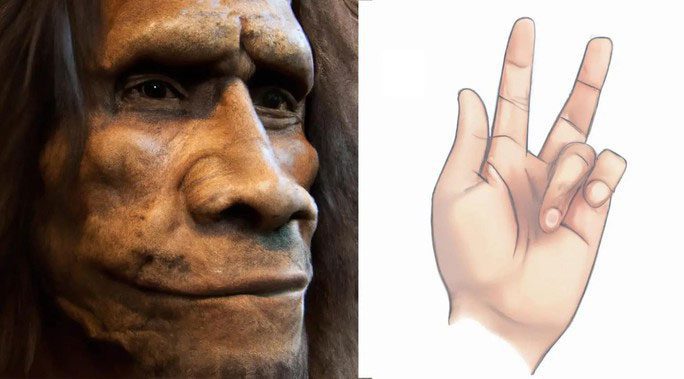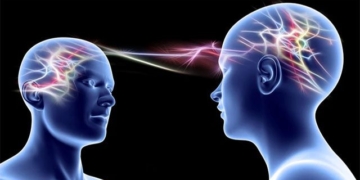A new study led by the 2022 Nobel Prize winner in Physiology has discovered that “Viking disease” is actually a legacy of the interbreeding of our ancestors with Neanderthals.
“Viking disease” is a rare condition in which older men have several fingers stuck in a bent position. Since this disease is most common in Northern Europe, affecting 30% of men over 60, it has been dubbed Viking disease (referring to the Vikings who lived in Northern Europe).
According to SciTech Daily, a team of scientists from the Karolinska Institute in Sweden, led by Associate Professor Hugo Zeberg and Professor Svante Pääbo, analyzed genetic data from over 7,800 individuals with Viking disease and made a surprising finding: traces of another species.

Some fingers bent may be due to a latent gene variant inherited from Neanderthal ancestors – (Photo: KAROLINSKA INSTITUTE)
Viking disease is officially known as Dupuytren’s contracture, which can occur in both men and women, though the majority of patients are still men. The disease typically begins with a lump in the palm of the hand, which gradually grows larger and causes one or more fingers to bend.
“Since Dupuytren’s contracture is rarely seen in individuals of African descent, we wondered if Neanderthal gene variants might partially explain this phenomenon,” explained Professor Zeberg.
Neanderthals are another species in the genus Homo, which includes modern humans, Homo sapiens (also known as Wise Man), as well as Denisovans and Homo Erectus.
Groups of Homo sapiens left Africa tens of thousands of years ago and encountered and coexisted with various communities of Neanderthals and Denisovans, leading to interspecies marriages. As a result, Africans represent the most “pure” group of Homo sapiens, serving as an important control group in studies of interspecies genetic factors in humans.
The study examined 7,800 individuals from three patient groups in the United States, the United Kingdom, and Finland.
The research team then compared the collected data from these patients with the genetic profiles of 645,800 healthy individuals, identifying 61 genetic risks potentially associated with Viking disease.
From this, they further filtered down and discovered three genetic traits that are indeed legacies from Neanderthal ancestors, among which two factors play significant roles as the second and third contributors to the disease.
This finding helps to complete an increasingly comprehensive picture of how genes from other species affect modern humans. Not all influences are detrimental; Neanderthal genes can also help many people reproduce more successfully, avoid certain infectious diseases, and improve metabolism…
One of the two lead authors of the study, geneticist Svante Pääbo, is the recipient of the 2022 Nobel Prize in Physiology for discoveries related to Neanderthals, including the successful sequencing of their genome.




















































